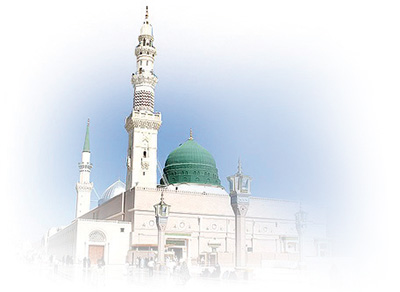Current Section: model

Lesson Knowing the Prophet (may Allah's peace and blessings be upon him)
The name of our Prophet ﷺ is
Muhammad ibn Abdullah ibn Abd al-Muttalib ibn Hashim al-Qurashi. He is the best of Arabs in lineage (may Allah's peace and blessings be upon him).
Allah sent our Prophet Muhammad (may Allah's peace and blessings be upon him) to all people of all races and ethnicities, and made obedience to him obligatory for all people. Allah Almighty said: {Say, O people, I am the Messenger of Allah to you all} (Al-A’raf: 158).
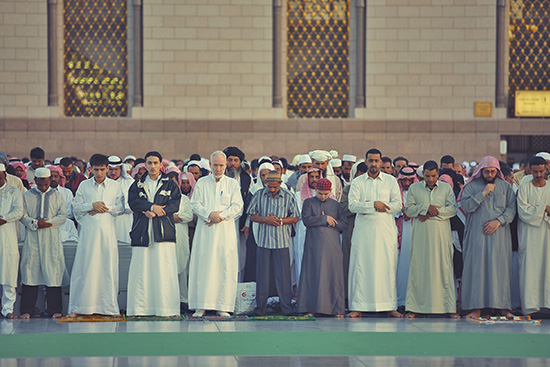
Allah revealed to Muhammad (may Allah's peace and blessings be upon him) His greatest book, the Qur’an, from which no falsehood can approach from in front or behind.
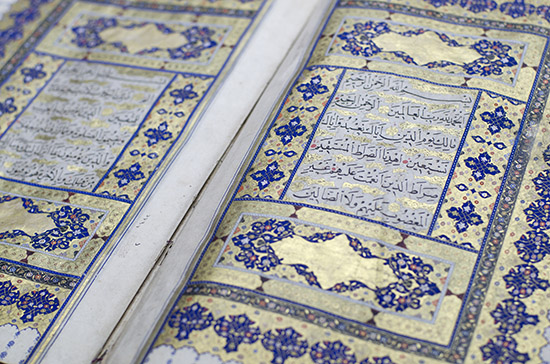
Allah sent Muhammad (may Allah's peace and blessings be upon him) as the seal of the prophets, and no prophet will come after him, as the Allah the Exalted said: {but [he is] the Messenger of Allah and seal [i.e., last] of the prophets} (Al-Ahzab:40).

1. His Birth ﷺ
He was born in Mecca in the year 570 CE. Orphaned from his father, he lost his mother at an early age, and was raised in the care of his grandfather Abdul Muttalib, and then after him in the care of his uncle Abu Talib, who protected him and defended him.
He lived among his tribe, the Quraysh, for forty years before prophethood (570-610 CE), during which he was an example of morality and an outstanding model of integrity. The Messenger of Allah before Islam, was a "Haneef": a person who worshipped God according to the religion of Abraham and rejected idolatry and pagan practices.
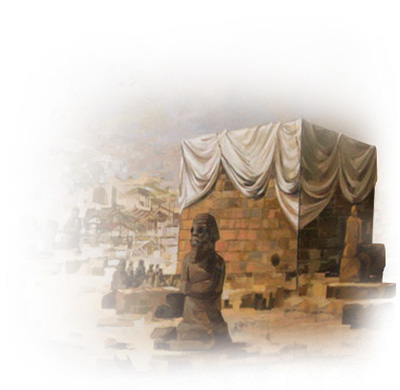
After the Messenger (may Allah's peace and blessings be upon him) had reached the age of 40, revelation came to him from Allah while he was meditating and worshipping Allah in the Cave of Hira on the Mount of Light. The Qur’an was revealed to him, and the first verse that was revealed to him from the Qur’an were the saying of Allah the Exalted: {Read in the name of your Lord who created} (Al-Alaq: 1). This was a proclamation that this mission, from its inception, would be a new era of knowledge, reading, light and guidance for people. The revelation of the Qur’an continued for 23 years.
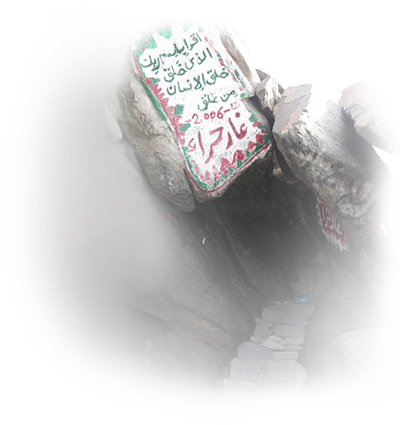
3. Beginning of his call to Islam ﷺ
The Messenger of Allah (may Allah's peace and blessings be upon him) began to preach the religion of Allah secretly for three years, after which he revealed the message and made it public for another ten years, during which the Messenger and his companions faced the most severe forms of persecution and injustice from his tribe, the Quraysh. He shared the message of Islam with the tribes that would come for pilgrimage, and the people of Medina accepted it, and little by little the Muslims started to move there.
5. His Migration ﷺ
He migrated to Medina, which was called Yathrib at that time in the year (622 CE) at the age of 53, after the leaders of Quraysh who opposed his call conspired against him and sought to kill him. He lived there for 10 years, calling to Islam, and enjoining prayer, zakat, and the rest of the laws of Islam.
The Messenger of Allah established the core of Islamic civilization in Medina after his migration (622 CE) and shaped the features of the Muslim community. He abolished tribalism, he spread knowledge, and established the principles of justice, integrity, brotherhood, cooperation and order. Some tribes tried to eliminate Islam, resulting in a number of wars and events. But Allah gave victory to His religion and His Messenger, and people continued to embrace Islam. Mecca and the majority of cities and tribes in the Arabian Peninsula entered Islam voluntarily, with conviction in this great religion.

In the month of Safar in the 11th year of the Prophet’s Hijrah, and after the Messenger conveyed the message and fulfilled what he was entrusted with and Allah completed His blessing on people by completing the religion, the Prophet (may Allah's peace and blessings be upon him) fell ill with a fever which worsened, and he passed away (may Allah's peace and blessings be upon him) during the day on Monday, Rabi' Al-Awwal, 11 AH, corresponding to 8/6/632 CE. He was 63 years old and was buried in the house of Aisha next to the Prophet’s Mosque (may Allah's peace and blessings be upon him).
